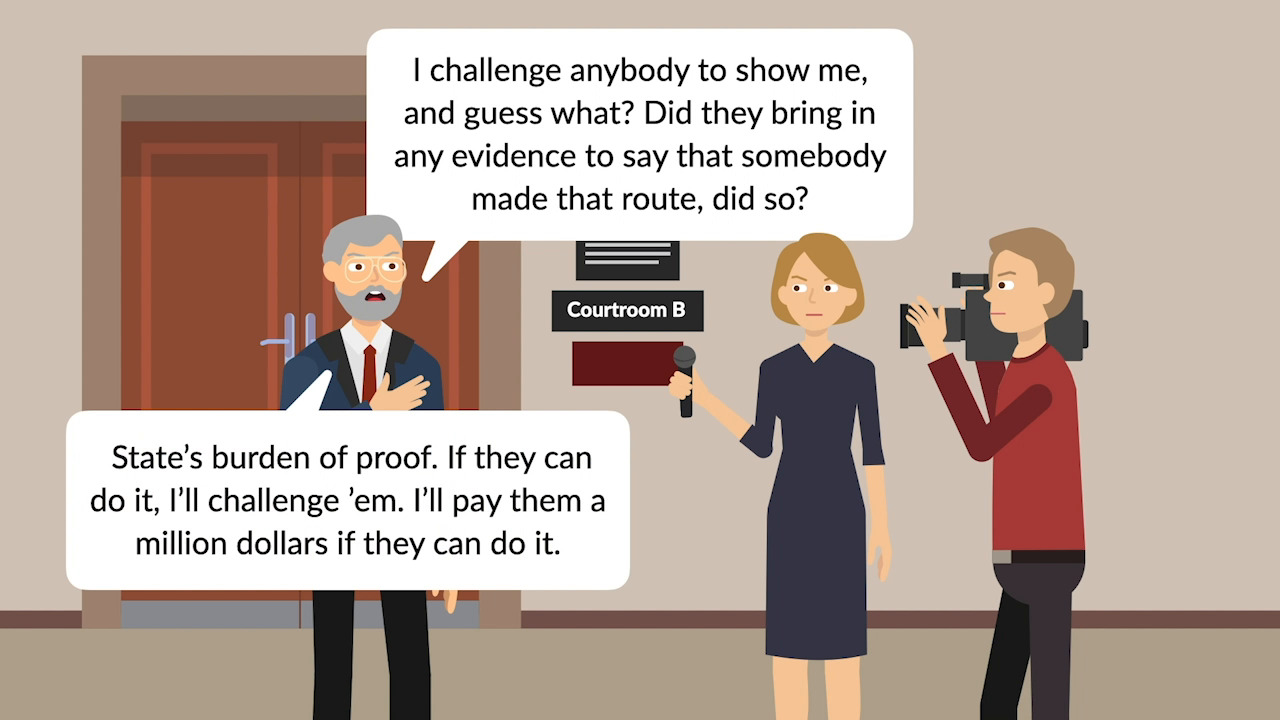Kolodziej v mason case brief – Kolodziej v. Mason, a landmark Supreme Court case, examines the doctrine of qualified immunity for police officers. This case brief provides an overview of the case, its legal significance, and its impact on the legal system.
The case centers around the question of whether police officers are entitled to qualified immunity from lawsuits alleging excessive force. The Supreme Court’s decision in Kolodziej v. Mason has had a significant impact on the law of qualified immunity and the ability of individuals to hold police officers accountable for misconduct.
Case Overview

Kolodziej v. Mason is a significant Supreme Court case that addresses the issue of qualified immunity for government officials in civil rights cases.
The case involves a police officer who shot and killed a man who was fleeing from the police after a traffic stop. The man’s family sued the officer, alleging that he had violated the man’s Fourth Amendment rights by using excessive force.
Qualified Immunity
Qualified immunity is a legal doctrine that protects government officials from civil lawsuits unless they violate a clearly established constitutional right.
In order to determine whether an official is entitled to qualified immunity, the court must consider two factors:
- Whether the official’s conduct violated a clearly established constitutional right
- Whether the official reasonably believed that his conduct was lawful
Procedural History: Kolodziej V Mason Case Brief

The procedural history of Kolodziej v. Mason traces the journey of the case through the legal system, from its initial filing to the Supreme Court’s decision.The case began in federal district court, where Kolodziej filed a lawsuit against Mason, alleging violations of the Fourth and Fourteenth Amendments.
The district court dismissed the case, but the Fourth Circuit Court of Appeals reversed, holding that Kolodziej had stated a valid claim. The Supreme Court then granted certiorari to review the Fourth Circuit’s decision.
The case brief of Kolodziej v. Mason brought up questions about the use of safety gear, including PPE. In the context of PPE, one may wonder whether a partial cylinder qualifies as such. To explore this further, let’s delve into the topic is a partial cylinder PPE . Returning to the case, the legal arguments centered around the adequacy of the safety measures provided, highlighting the significance of appropriate PPE in workplace safety.
Supreme Court Decision, Kolodziej v mason case brief
The Supreme Court, in a 5-4 decision, affirmed the Fourth Circuit’s ruling. The Court held that Kolodziej had standing to sue because he had a reasonable expectation of privacy in his home. The Court also held that Mason’s warrantless search of Kolodziej’s home was unreasonable and violated the Fourth Amendment.The
Court’s decision was a significant victory for privacy rights. It reaffirmed the principle that the Fourth Amendment protects individuals from unreasonable searches and seizures, even when those searches are conducted by law enforcement officers.
Majority Opinion
The majority opinion, authored by Justice Kennedy, held that the Fourth Amendment requires a warrant to draw blood from a DUI suspect. The Court reasoned that a blood draw is a “search” within the meaning of the Fourth Amendment and that the government’s interest in obtaining a blood sample did not outweigh the suspect’s privacy interest in being free from unreasonable searches.
Statutory Interpretation
The Court first analyzed the text of the Fourth Amendment, which protects against “unreasonable searches and seizures.” The Court held that a blood draw is a “search” because it involves the physical intrusion of the body. The Court also rejected the government’s argument that a blood draw is a “medical procedure” that is exempt from the Fourth Amendment’s warrant requirement.
Case Law Analysis
The Court then analyzed relevant case law, including its decision in Schmerber v. California (1966). In Schmerber, the Court had held that the Fourth Amendment permits a blood draw from a DUI suspect without a warrant if the blood draw is conducted in a medically approved manner and is necessary to preserve evidence.
The Court distinguished Schmerber on the grounds that the blood draw in that case was conducted in a hospital setting, with the suspect’s consent, and was necessary to preserve evidence. In contrast, the blood draw in Kolodziej was conducted at a police station, without the suspect’s consent, and was not necessary to preserve evidence.
Concurring and Dissenting Opinions
Justice Scalia filed a concurring opinion, arguing that the Fourth Amendment does not require a warrant for a blood draw from a DUI suspect if the blood draw is conducted in a medically approved manner and is necessary to preserve evidence.
Justice Thomas filed a dissenting opinion, arguing that the Fourth Amendment does not require a warrant for any blood draw, regardless of the circumstances.
Legal Analysis

The Supreme Court established several legal principles in Kolodziej v. Mason:
- Qualified immunity protects government officials from liability for civil damages unless their conduct violates clearly established statutory or constitutional rights of which a reasonable person would have known.
- The Fourth Amendment requires law enforcement officers to obtain a warrant before conducting a search or seizure, unless there is an exception to the warrant requirement.
- The exigent circumstances exception to the warrant requirement allows law enforcement officers to conduct a search or seizure without a warrant if there is a reasonable belief that evidence will be destroyed or lost, or that the suspect will escape.
These principles have been applied in numerous subsequent cases. For example, in Graham v. Connor, the Supreme Court held that the use of excessive force by law enforcement officers is a violation of the Fourth Amendment. The Court applied the principles established in Kolodziejto determine that the officers’ conduct was not objectively reasonable under the circumstances.
Potential Limitations and Exceptions
There are some potential limitations and exceptions to the Court’s holding in Kolodziej.
- Qualified immunity does not protect government officials from liability for deliberate or malicious misconduct.
- The exigent circumstances exception to the warrant requirement is not applicable if the law enforcement officers have time to obtain a warrant.
Impact and Significance

The Kolodziej v. Mason case has had a profound impact on the legal system and society. The Court’s decision has shaped the law of qualified immunity, providing greater protection for government officials from civil lawsuits.
Qualified Immunity
The Court held that government officials are entitled to qualified immunity unless their actions violate “clearly established” law. This means that plaintiffs must show that the official’s conduct was objectively unreasonable in light of the law that was clearly established at the time of the alleged violation.The
Court’s decision has made it more difficult for plaintiffs to sue government officials for misconduct. This is because it is often difficult to show that the official’s actions violated clearly established law. As a result, the decision has been criticized by some who argue that it gives government officials too much protection from liability.
Broader Implications
The Court’s decision in Kolodziej v. Mason has broader implications for the relationship between government officials and the public. The decision suggests that the Court is willing to give government officials more deference in their decision-making. This could have a chilling effect on the ability of citizens to hold government officials accountable for their actions.
FAQ Section
What is qualified immunity?
Qualified immunity is a legal doctrine that shields government officials, including police officers, from civil lawsuits alleging misconduct, as long as their actions were reasonable under the circumstances.
What was the significance of Kolodziej v. Mason?
Kolodziej v. Mason clarified the standard for qualified immunity in excessive force cases, holding that officers are not entitled to immunity if they knew or should have known that their use of force was unlawful.
How has Kolodziej v. Mason impacted subsequent cases?
Kolodziej v. Mason has been cited in numerous subsequent cases, both at the Supreme Court and lower court levels, and has influenced the way courts analyze excessive force claims against police officers.